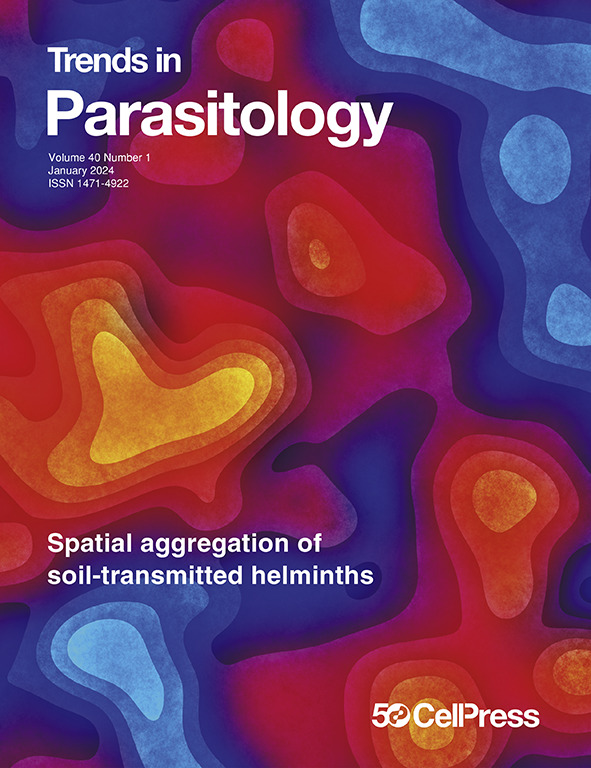恶性疟原虫青蒿素抗药性:翻译中的收获。
IF 7
1区 医学
Q1 PARASITOLOGY
引用次数: 0
摘要
斯莫尔-桑德斯(Small-Saunders)等人发现了疟原虫对青蒿素抗药性的一个新方面,即寄生虫利用了以前未被充分探索的应激反应机制。通过改变 tRNA 的表转录组修饰,翻译模式的改变使抗药性细胞进入类似静止的状态,从而使寄生虫摆脱了许多药物的控制。本文章由计算机程序翻译,如有差异,请以英文原文为准。
Plasmodium falciparum artemisinin resistance: something gained in translation.
Small-Saunders et al. uncovered a new facet of artemisinin resistance in Plasmodium in which parasites use a previously underexplored arm of stress response mechanisms. Through altered epitranscriptomic modifications on tRNA, changed translation patterns adapt resistant cells to facilitate entry into a quiescent-like state which provides the parasite an escape from many drugs.
求助全文
通过发布文献求助,成功后即可免费获取论文全文。
去求助
来源期刊

Trends in parasitology
医学-寄生虫学
CiteScore
14.00
自引率
3.10%
发文量
148
审稿时长
6-12 weeks
期刊介绍:
Since its inception as Parasitology Today in 1985, Trends in Parasitology has evolved into a highly esteemed review journal of global significance, reflecting the importance of medical and veterinary parasites worldwide. The journal serves as a hub for communication among researchers across all disciplines of parasitology, encompassing endoparasites, ectoparasites, transmission vectors, and susceptible hosts.
Each monthly issue of Trends in Parasitology offers authoritative, cutting-edge, and yet accessible review articles, providing a balanced and comprehensive overview, along with opinion pieces offering personal and novel perspectives. Additionally, the journal publishes a variety of short articles designed to inform and stimulate thoughts in a lively and widely-accessible manner. These include Science & Society (discussing the interface between parasitology and the general public), Spotlight (highlighting recently published research articles), Forum (presenting single-point hypotheses), Parasite/Vector of the Month (featuring a modular display of the selected species), Letter (providing responses to recent articles in Trends in Parasitology), and Trendstalk (conducting interviews). Please note that the journal exclusively publishes literature reviews based on published data, with systematic reviews, meta-analysis, and unpublished primary research falling outside our scope.
 求助内容:
求助内容: 应助结果提醒方式:
应助结果提醒方式:


